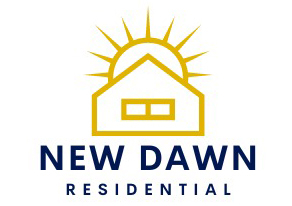The decision to rent or buy a home is a significant milestone, and it often comes with a mix of excitement and uncertainty. In this guide, we’ll explore the key differences between renting and buying, weigh the benefits and drawbacks of each option, to help you make an informed decision.
Key Differences in Renting or Buying a Home in the UK
Financial Considerations
Buying: Purchasing a home typically involves a substantial financial commitment. You’ll need a down payment, monthly mortgage payments, and additional costs such as property taxes and maintenance. However, this becomes an investment opportunity if ever you want to move and sell your property, the value may appreciate enough for you to make a profit.
Renting: Renting tends to have lower upfront costs, often requiring a security deposit and the first month’s rent. Monthly rent payments cover the cost of living in the property without the long-term financial commitment of homeownership.
Flexibility
Buying: Owning a home provides stability and the freedom to customize your space. However, selling a property can take time, and the process may limit your ability to relocate quickly.
Renting: Renting offers greater flexibility. If your circumstances change, such as a job relocation or lifestyle adjustment, you can more easily move to a new rental property without the complexities of selling a home.
Responsibilities
Buying: Homeownership comes with responsibilities such as property maintenance, repairs, and adherence to local regulations. While these tasks contribute to building equity, they also require time and financial investment.
Renting: Renters typically have fewer responsibilities. Property maintenance and repairs are the landlord’s responsibility, allowing tenants to focus on enjoying their living space without the burden of homeownership tasks.
Benefits and Cons of Buying a Home
Benefits
- Building Equity: Mortgage payments contribute to building equity, providing a long-term investment. Real estate investments are also a rare investment that allows you to leverage against it unlike stocks and bonds.
- Stability: Homeownership offers a sense of stability and the opportunity to establish roots in a community.
Drawbacks
- Financial Commitment: Purchasing a home requires a substantial financial commitment, including a down payment and ongoing expenses.
- Market Risks: Property values can fluctuate, impacting the potential return on investment.
Benefits and Cons of Renting a Home
Benefits
- Flexibility: Renting provides the flexibility to adapt to changing circumstances without the complexities of selling a property.
- Lower Upfront Costs: Renting generally involves lower upfront costs, making it a more accessible option for some individuals.
Drawbacks
- Limited Equity: Rent payments do not contribute to building equity or ownership in the property.
- Rent Increases: Rent may increase over time, potentially impacting long-term affordability.
Summary
The decision to rent or buy ultimately depends on your individual circumstances, financial goals, and lifestyle preferences. Buying a home offers the potential for long-term stability and equity building, while renting provides flexibility and lower upfront costs. Many people’s property journey looks different. Some begin with renting and move into homeownership at a later stage. Others invest into a property, and move into renting depending on the rental market. It is all dependent on your goals. If you currently own a home but struggling to pay your mortgage, please contact us today and see how we can help.

